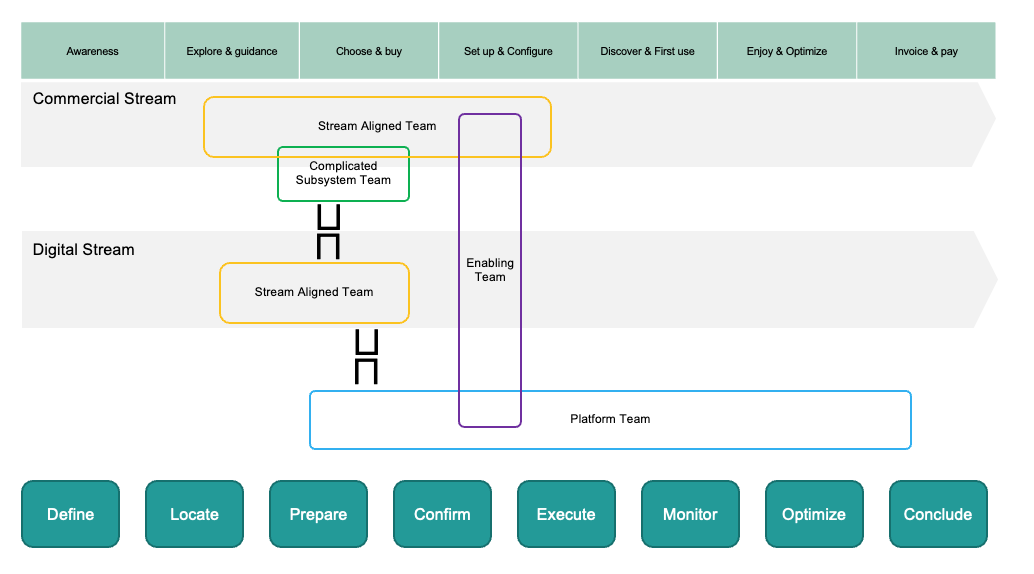- MindByte Weekly Pulse: Quick GitHub, Azure, & .NET Updates
- Posts
- MindByte Issue #87: Boost Your Workflow: GitHub, DevContainers, and Kafka
MindByte Issue #87: Boost Your Workflow: GitHub, DevContainers, and Kafka
This edition covers moving from AWS CodeCommit to GitHub Enterprise, the impact of upcoming elections on developers, optimizing Azure SQL with DevContainers, reconsidering Team Topologies, and leveraging Kafka in .NET.
Hi there, and welcome back, and for all the new subscribers, welcome aboard!
To ensure you keep getting these updates seamlessly, please move this email to your primary inbox or mark it as important. A quick reply like "got it" also helps boost visibility. This edition covers exciting topics such as:
Move from AWS CodeCommit to GitHub Enterprise
Elections this year, what is at stake for developers
Use DevContainers for Azure SQL databases
Stop using Team Topologies?
Kafka in .NET
New here? Subscribe here to stay updated. Let's dive in.
Sending out this newsletter to 85 subscribers is something I do with love, but does cost money as well. It would really help me if you visit my sponsor:
Want SOC 2 compliance without the Security Theater?
Get the all-in-one platform for SOC 2
Build real-world security 💪
Penetration testing, compliance software, 3rd party audit, & vCISO
Interested in sponsoring this newsletter? Contact me!
GitHub Digest
AWS recently announced they will discontinue some of their offerings like AWS CodeCommit. CodeCommit was a version control service in the cloud, offering Git hosting. There was support for Pull Requests, approvals, and connectivity to other AWS services like CodePipeline for workflows etc.
Although you can still use the service, it will stop getting new features and you cannot sign up anymore for new accounts.
An alternative is of course GitHub Enterprise, offering similar features and more. This next article describes what you need to do to move over.
A lot is happening around the world, and some changes in governments are to be expected with so many elections going on this year. Of course this has impact on the IT side of things as well; there is so much movement now with AI for example.
But there is more at hand, read the blog post to be informed.
Coding Corner
A devcontainer is a feature in GitHub to host a container in the cloud and access this with either your local Visual Studio Code or a webbased version. The container has some CPU, memory and storage and can be a Python host, .NET SDK, Ruby on Rails environment etc.
This allows you to get an isolated dev environment, ready for use, stored in a git folder. No need to do any local installs or run into conflicting versions.
Although there are already a lot of options available, Microsoft has made a dev container available for working with Azure SQL databases.
No need to install all kinds of tools, just start the dev container from the GH website and connect to your data.
When you use MSTest as your unit testing framework, you get some analysers with it. They will warn you about some common mistakes in your tests.
In version 3.5.1, there are some more added, like detecting that you forgot the TestClass attribute. There are some more, showing how beneficial it is to use analysers and turn them into warnings.
I like the book Team Topologies as it describes a number of patterns and tools to better align teams inside an organisation. As with all methodologies, every organisation is unique and requires its own take.
The next articles provides a more practical approach and tells what works, and does not work.
Azure Updates & Insights
Shameless plug for my other newsletter; Azure FinOps Essentials. I wrote a piece about the cost optimizations you can do when you consider your non-prod environment.
Maybe there is some money to gain…
.NET Nook
Kafka was for me always that tool from the other stack. When you used Java, Scala etc, you could only use Kafka. Of course, this makes no sense, as it is perfectly fine to use it with .NET as well.
The Wolverine framework is still on my lists of things to play with. It looks like it is capable of a lot of things, but still being simple about it. Full of conventions over configuration, and containing clever tricks, it allows you to build message driven systems.
Including Saga support, which does look surprisedly easy…
Closing Thoughts
Thank you for reading this week’s edition!
Your feedback is invaluable, so if you have any thoughts, questions, or suggestions, please don't hesitate to reach out by simply replying to this mail.
If you enjoyed this update and want to continue receiving more, make sure to subscribe here.
I appreciate your time and look forward to hearing from you!









Reply